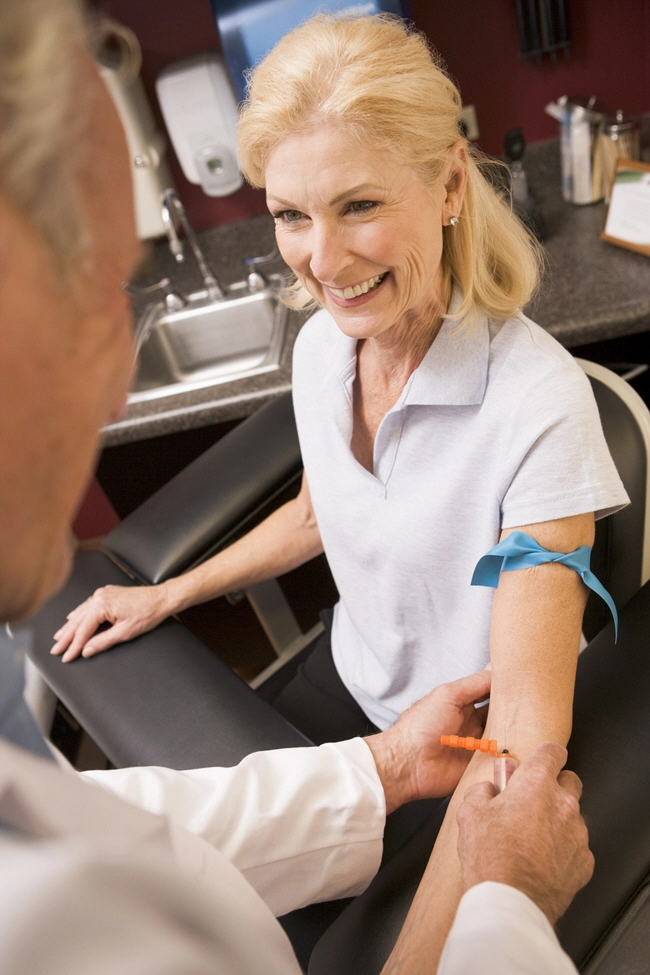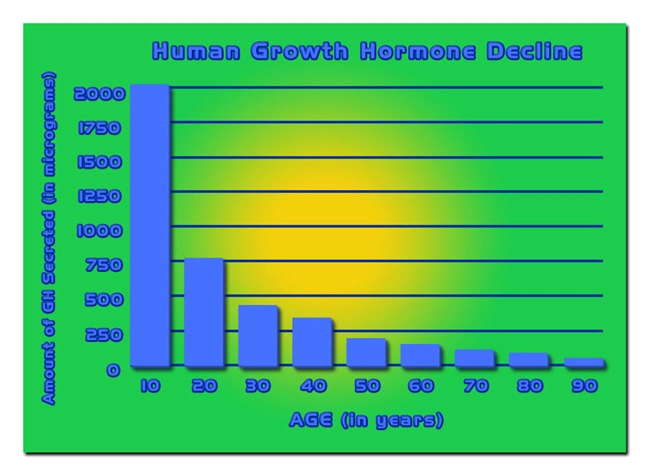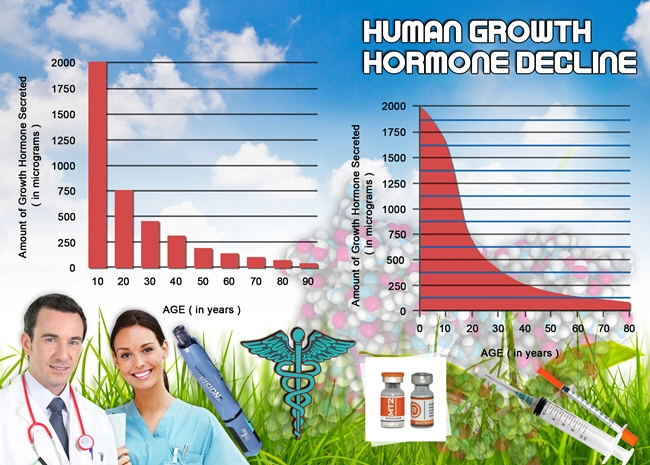
Understanding Late-Onset Hypogonadism
Late-onset hypogonadism (LOH), also known as age-related low testosterone, is a clinical and biochemical syndrome characterized by a deficiency in serum testosterone levels in conjunction with specific signs and symptoms. This condition predominantly affects men as they age, typically starting in their 40s or 50s. The prevalence of LOH in American men is significant, with estimates suggesting that up to 39% of men over the age of 45 may experience some degree of testosterone deficiency.
Symptoms and Diagnosis
The symptoms of LOH can be subtle and often overlap with the natural aging process, making diagnosis challenging. Common symptoms include reduced libido, erectile dysfunction, decreased muscle mass, increased body fat, fatigue, and mood disturbances such as depression or irritability. To diagnose LOH, healthcare providers typically measure serum testosterone levels, often requiring multiple tests due to the natural fluctuations in testosterone throughout the day. A thorough clinical evaluation, including a detailed medical history and physical examination, is essential to rule out other conditions that may mimic LOH symptoms.
Impact on Health and Well-being
The implications of LOH extend beyond sexual health, affecting overall well-being and quality of life. Low testosterone levels have been linked to an increased risk of cardiovascular disease, osteoporosis, and metabolic syndrome, which can lead to diabetes and obesity. Furthermore, the psychological impact of LOH should not be underestimated, as it can contribute to decreased motivation, cognitive decline, and a diminished sense of vitality.
Treatment Options
Treatment for LOH typically involves testosterone replacement therapy (TRT), which can be administered through various methods, including injections, gels, patches, or pellets. TRT aims to restore testosterone levels to a normal range, alleviating symptoms and potentially reducing the risk of associated health conditions. However, TRT is not suitable for everyone, and a careful assessment of the risks and benefits is necessary. Lifestyle modifications, such as regular exercise, a balanced diet, and stress management, can also play a crucial role in managing LOH symptoms and improving overall health.
Staying Proactive and Informed
American men can take several steps to stay proactive about their health and informed about LOH. Regular check-ups with a healthcare provider are essential, particularly as men enter their 40s and beyond. Open communication about symptoms and concerns can facilitate early detection and intervention. Educating oneself about LOH through reputable sources can empower men to make informed decisions about their health. Joining support groups or online communities can provide additional resources and a sense of camaraderie among those experiencing similar challenges.
The Role of Preventive Care
Preventive care is a cornerstone of managing LOH and maintaining overall health. Routine screenings for conditions such as diabetes, cardiovascular disease, and prostate health can help identify potential issues early. Vaccinations, such as those for influenza and pneumonia, are also important for older men to reduce the risk of illness. Engaging in preventive care not only helps manage LOH but also contributes to a healthier, more active lifestyle.
Conclusion
Late-onset hypogonadism is a common yet often underrecognized condition among American men. By understanding the symptoms, seeking timely diagnosis, and exploring appropriate treatment options, men can effectively manage LOH and improve their quality of life. Staying proactive through regular health check-ups, lifestyle modifications, and education is crucial. As the awareness of LOH continues to grow, American men are encouraged to take charge of their health and well-being, ensuring a vibrant and fulfilling life as they age.
Contact Us Today For A Free Consultation
Dear Patient,
Once you have completing the above contact form, for security purposes and confirmation, please confirm your information by calling us.
Please call now: 1-800-380-5339.
Welcoming You To Our Clinic, Professor Tom Henderson.

- Exploring Alternative Therapies for Late-Onset Hypogonadism in American Males [Last Updated On: February 25th, 2025] [Originally Added On: February 25th, 2025]
- Late-Onset Hypogonadism: Symptoms, Diagnosis, and Comprehensive Management Strategies [Last Updated On: March 18th, 2025] [Originally Added On: March 18th, 2025]
- Economic Impact of Late-Onset Hypogonadism in Aging U.S. Men: Challenges and Strategies [Last Updated On: March 18th, 2025] [Originally Added On: March 18th, 2025]
- Late-Onset Hypogonadism: Impact on Muscle Mass and Treatment Options in American Men [Last Updated On: March 18th, 2025] [Originally Added On: March 18th, 2025]
- Genetic Factors in Late-Onset Hypogonadism: Insights for American Males [Last Updated On: March 18th, 2025] [Originally Added On: March 18th, 2025]
- Innovative Treatments and Future Directions for Late-Onset Hypogonadism in American Males [Last Updated On: March 18th, 2025] [Originally Added On: March 18th, 2025]
- Managing Late-Onset Hypogonadism in Men Over 40: Diagnosis, Treatment, and Lifestyle [Last Updated On: March 20th, 2025] [Originally Added On: March 20th, 2025]
- Late-Onset Hypogonadism: Impact on Fertility and Management in American Men [Last Updated On: March 20th, 2025] [Originally Added On: March 20th, 2025]
- Managing Late-Onset Hypogonadism: Symptoms, Screening, and Lifestyle Strategies for American Men [Last Updated On: March 20th, 2025] [Originally Added On: March 20th, 2025]
- Late-Onset Hypogonadism: Impacts on Mood, Energy, and Treatment Approaches [Last Updated On: March 21st, 2025] [Originally Added On: March 21st, 2025]
- Late-Onset Hypogonadism in American Men: Diagnosis, Treatment, and Vitality Maintenance [Last Updated On: March 21st, 2025] [Originally Added On: March 21st, 2025]
- Late-Onset Hypogonadism: Impact on Sleep and Health in American Men [Last Updated On: March 22nd, 2025] [Originally Added On: March 22nd, 2025]
- Managing Late-Onset Hypogonadism: Nutrition, Diet, and Lifestyle Strategies for American Men [Last Updated On: March 22nd, 2025] [Originally Added On: March 22nd, 2025]
- Late-Onset Hypogonadism in American Men: Symptoms, Treatment, and Lifestyle Management [Last Updated On: March 22nd, 2025] [Originally Added On: March 22nd, 2025]
- Late-Onset Hypogonadism in American Males: Prevalence, Impact, and Management Strategies [Last Updated On: March 22nd, 2025] [Originally Added On: March 22nd, 2025]
- Holistic Management of Late-Onset Hypogonadism in American Males: A Comprehensive Approach [Last Updated On: March 23rd, 2025] [Originally Added On: March 23rd, 2025]
- Early Intervention Benefits for Late-Onset Hypogonadism in American Men [Last Updated On: March 23rd, 2025] [Originally Added On: March 23rd, 2025]
- Long-term Effects of Late-Onset Hypogonadism on American Men's Health and Well-being [Last Updated On: March 23rd, 2025] [Originally Added On: March 23rd, 2025]
- Managing Late-Onset Hypogonadism: Symptoms, Treatment, and Lifestyle Strategies for American Men [Last Updated On: March 23rd, 2025] [Originally Added On: March 23rd, 2025]
- Late-Onset Hypogonadism: Overcoming Stigma and Enhancing Life Quality in American Men [Last Updated On: March 23rd, 2025] [Originally Added On: March 23rd, 2025]
- Dietary Strategies to Manage Late-Onset Hypogonadism in American Men [Last Updated On: March 23rd, 2025] [Originally Added On: March 23rd, 2025]
- Diagnosing Late-Onset Hypogonadism in American Males: A Comprehensive Guide [Last Updated On: March 24th, 2025] [Originally Added On: March 24th, 2025]
- Exploring the Link Between Late-Onset Hypogonadism and Diabetes in American Males [Last Updated On: March 24th, 2025] [Originally Added On: March 24th, 2025]
- Late-Onset Hypogonadism: Cognitive Impacts and Management in American Men [Last Updated On: March 24th, 2025] [Originally Added On: March 24th, 2025]
- Exercise Boosts Testosterone: Managing Late-Onset Hypogonadism in American Males [Last Updated On: March 24th, 2025] [Originally Added On: March 24th, 2025]
- Managing Late-Onset Hypogonadism: Symptoms, Diagnosis, and Treatment in American Men [Last Updated On: March 24th, 2025] [Originally Added On: March 24th, 2025]
- Managing Late-Onset Hypogonadism: Diagnosis, Treatment, and Independence for Aging American Men [Last Updated On: March 24th, 2025] [Originally Added On: March 24th, 2025]
- Hormone Replacement Therapy: Managing Late-Onset Hypogonadism in American Men [Last Updated On: March 24th, 2025] [Originally Added On: March 24th, 2025]
- Late-Onset Hypogonadism: Understanding Treatments and Managing Side Effects [Last Updated On: March 25th, 2025] [Originally Added On: March 25th, 2025]
- Understanding Late-Onset Hypogonadism: Symptoms, Diagnosis, and Management in Aging Men [Last Updated On: March 25th, 2025] [Originally Added On: March 25th, 2025]
- Stress and Late-Onset Hypogonadism: Impact and Management in American Males [Last Updated On: March 25th, 2025] [Originally Added On: March 25th, 2025]
- Understanding Late-Onset Hypogonadism: Myths, Facts, and Effective Management Strategies [Last Updated On: March 25th, 2025] [Originally Added On: March 25th, 2025]
- Managing Late-Onset Hypogonadism: A Multidisciplinary Approach for American Men [Last Updated On: March 25th, 2025] [Originally Added On: March 25th, 2025]
- Community Support Enhances Late-Onset Hypogonadism Management in American Males [Last Updated On: March 25th, 2025] [Originally Added On: March 25th, 2025]
- Managing Late-Onset Hypogonadism: Emotional Journey and Support for American Men [Last Updated On: March 25th, 2025] [Originally Added On: March 25th, 2025]
- Late-Onset Hypogonadism: Impact on American Men's Careers and Workplace Strategies [Last Updated On: March 25th, 2025] [Originally Added On: March 25th, 2025]
- Late-Onset Hypogonadism: Impact on Men's Health and Intimate Relationships in America [Last Updated On: March 25th, 2025] [Originally Added On: March 25th, 2025]
- Late-Onset Hypogonadism in American Males: Education, Symptoms, and Management Strategies [Last Updated On: March 26th, 2025] [Originally Added On: March 26th, 2025]
- Late-Onset Hypogonadism: Health Risks and Treatment Options for American Men [Last Updated On: March 26th, 2025] [Originally Added On: March 26th, 2025]
- Late-Onset Hypogonadism: Health Impacts and Financial Challenges for American Men [Last Updated On: March 26th, 2025] [Originally Added On: March 26th, 2025]
- Late-Onset Hypogonadism: Symptoms, Diagnosis, and Management Strategies for American Men [Last Updated On: March 26th, 2025] [Originally Added On: March 26th, 2025]
- Legal Aspects of Late-Onset Hypogonadism: Diagnosis, Treatment, and Rights in the U.S. [Last Updated On: March 27th, 2025] [Originally Added On: March 27th, 2025]
- Managing Late-Onset Hypogonadism: Symptoms, Diagnosis, and Treatment for American Men [Last Updated On: March 27th, 2025] [Originally Added On: March 27th, 2025]
- Late-Onset Hypogonadism: Cultural Impacts on American Men's Health and Treatment [Last Updated On: March 27th, 2025] [Originally Added On: March 27th, 2025]
- Late-Onset Hypogonadism: Impact, Detection, and Management in American Males [Last Updated On: March 28th, 2025] [Originally Added On: March 28th, 2025]
- Advocating for Better Care in Late-Onset Hypogonadism: A Call to Action for American Men [Last Updated On: March 28th, 2025] [Originally Added On: March 28th, 2025]
- Managing Late-Onset Hypogonadism: Diagnosis, Treatments, and Lifestyle Strategies for American Men [Last Updated On: March 28th, 2025] [Originally Added On: March 28th, 2025]
- Technological Advances in Diagnosing Late-Onset Hypogonadism in Aging American Men [Last Updated On: March 28th, 2025] [Originally Added On: March 28th, 2025]
- Late-Onset Hypogonadism: Symptoms, Impact, and Vital Role of Family Support in American Males [Last Updated On: March 29th, 2025] [Originally Added On: March 29th, 2025]
- Late-Onset Hypogonadism: Understanding Diagnosis and Impact on American Men's Health [Last Updated On: March 29th, 2025] [Originally Added On: March 29th, 2025]
- Managing Late-Onset Hypogonadism: Diet, Exercise, Sleep, and Stress Strategies for American Men [Last Updated On: March 30th, 2025] [Originally Added On: March 30th, 2025]
- Managing Late-Onset Hypogonadism: The Vital Role of Mental Health Professionals [Last Updated On: March 30th, 2025] [Originally Added On: March 30th, 2025]
- Late-Onset Hypogonadism's Impact on American Men's Self-Esteem: A Comprehensive Overview [Last Updated On: April 3rd, 2025] [Originally Added On: April 3rd, 2025]
- Late-Onset Hypogonadism in American Males: Peer Support and Holistic Management [Last Updated On: April 4th, 2025] [Originally Added On: April 4th, 2025]
- Navigating Insurance Coverage for Late-Onset Hypogonadism Treatment in American Men [Last Updated On: April 4th, 2025] [Originally Added On: April 4th, 2025]
- Late-Onset Hypogonadism: Social Impacts and Support for American Men [Last Updated On: April 5th, 2025] [Originally Added On: April 5th, 2025]
- Research Advances in Late-Onset Hypogonadism: Diagnosis, Treatment, and Future Prospects [Last Updated On: April 5th, 2025] [Originally Added On: April 5th, 2025]
- Managing Late-Onset Hypogonadism: Stress Reduction Strategies for American Men [Last Updated On: April 6th, 2025] [Originally Added On: April 6th, 2025]
- Late-Onset Hypogonadism: Advocacy's Role in Diagnosis, Treatment, and Support for American Men [Last Updated On: April 6th, 2025] [Originally Added On: April 6th, 2025]
- Understanding Late-Onset Hypogonadism: Symptoms, Diagnosis, and Management for American Males [Last Updated On: April 7th, 2025] [Originally Added On: April 7th, 2025]
- Nutritionists' Role in Managing Late-Onset Hypogonadism Through Diet and Lifestyle [Last Updated On: April 10th, 2025] [Originally Added On: April 10th, 2025]
- Managing Late-Onset Hypogonadism: Strategies for American Men's Mental Health [Last Updated On: April 10th, 2025] [Originally Added On: April 10th, 2025]
- Late-Onset Hypogonadism in American Males: Symptoms, Diagnosis, and Management Strategies [Last Updated On: April 11th, 2025] [Originally Added On: April 11th, 2025]
- Managing Late-Onset Hypogonadism: Symptoms, Diagnosis, and Treatment for American Men [Last Updated On: April 12th, 2025] [Originally Added On: April 12th, 2025]
- Managing Late-Onset Hypogonadism: Symptoms, Diagnosis, and Treatment Options for Aging Men [Last Updated On: April 12th, 2025] [Originally Added On: April 12th, 2025]
- Managing Late-Onset Hypogonadism: Exercise and Lifestyle Strategies for American Men [Last Updated On: April 13th, 2025] [Originally Added On: April 13th, 2025]
- Late-Onset Hypogonadism: Emotional Impact and Support Strategies for American Men [Last Updated On: April 15th, 2025] [Originally Added On: April 15th, 2025]
- Late-Onset Hypogonadism: Impacts on American Men's Professional Performance and Career [Last Updated On: April 15th, 2025] [Originally Added On: April 15th, 2025]
- Endocrinologists' Role in Managing Late-Onset Hypogonadism in Aging American Males [Last Updated On: April 16th, 2025] [Originally Added On: April 16th, 2025]
- Late-Onset Hypogonadism in American Males: Prevalence, Diagnosis, and Treatment Strategies [Last Updated On: April 16th, 2025] [Originally Added On: April 16th, 2025]
- Late-Onset Hypogonadism: Symptoms, Diagnosis, and Personalized Treatment for American Men [Last Updated On: April 16th, 2025] [Originally Added On: April 16th, 2025]
- Managing Late-Onset Hypogonadism: Diet, Exercise, Sleep, and Stress Strategies for American Men [Last Updated On: April 18th, 2025] [Originally Added On: April 18th, 2025]
- Comprehensive Care for Late-Onset Hypogonadism in American Males: A Holistic Approach [Last Updated On: April 18th, 2025] [Originally Added On: April 18th, 2025]
- Managing Late-Onset Hypogonadism: Diet, Exercise, Sleep, and Holistic Approaches for American Men [Last Updated On: April 18th, 2025] [Originally Added On: April 18th, 2025]
- Managing Late-Onset Hypogonadism: Impact, Diagnosis, and Treatment for American Men [Last Updated On: April 19th, 2025] [Originally Added On: April 19th, 2025]
- Managing Late-Onset Hypogonadism: Leveraging Community Resources for Holistic Care [Last Updated On: April 20th, 2025] [Originally Added On: April 20th, 2025]
- Therapists' Crucial Role in Managing Late-Onset Hypogonadism in American Males [Last Updated On: April 20th, 2025] [Originally Added On: April 20th, 2025]








